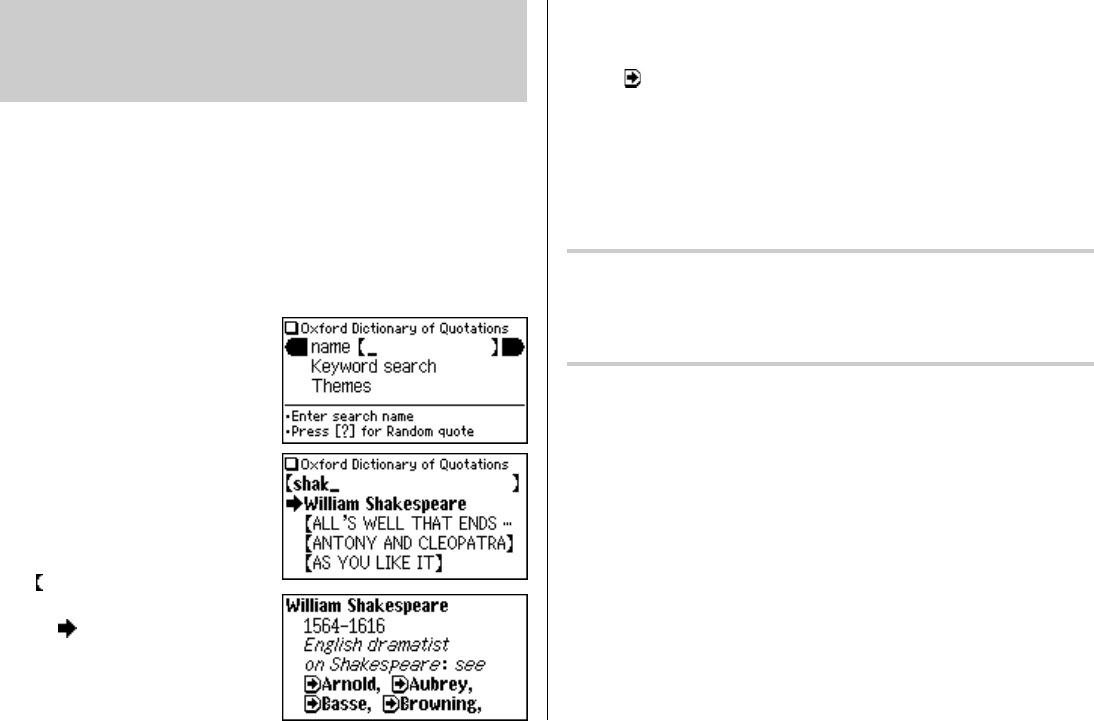
20
Using the
Oxford Dictionary of
Quotations
Input an author’s surname in the
Oxford Dictionary of Quotations
to find his/her
quotations. A search can also be initiated by keywords and themes, or it is possible
to display quotations at random.
Searching by an author name (Filter search)
Find a set of related quotations by inputting the spelling of an author.
<Example>
List a set of quotations by ‘William Shakespeare’.
1. Press
u
to open the
Oxford
Dictionary of Quotations
.
The name input screen of the
Oxford
Dictionary of Quotations
appears.
2. Start to input the word ‘shakespeare’.
As you type, the match narrows. If the
desired word is found, then you do not
need to type any more letters.
• In this example, the rows headed by
‘
’ contain subheadings within the
entry for ‘William Shakespeare’.
3. While ‘
’ appears to the left of ‘William
Shakespeare’, press
e
. The
detail view of the entry ‘William
Shakespeare’ appears.
•To browse contents on the next/previous page, press
} {
or
> <
. You
may also find the Quick View function useful.
•To search a word in the detail view, or to search for an item indicated under
the
, use the Super Jump function.
• Press
f
to return to the previous screen.
• Press
^ l
to list the headings in the
Oxford Dictionary of Quotations
.
•To search a different word, simply begin inputting a new spelling for the word,
or press
b
or
u
to go to the input screen of the
Oxford Dictionary
of Quotations
.
If there is no match found
The matching headers narrows down as you type. If the match is narrowed down to
none, a message ‘similar words’ will be displayed. Press
e
to list the headers
that alphabetically follow the entered string.
Note about entering characters
While entering characters, exclude characters such as spaces, hyphens,
apostrophes, slashes, and periods. See page 12 for details.
Note:
• The names of collections or compilations, such as the ‘Bible’ or ‘Anonymous’, can
be used for a search.
• Instead of inputting an author's surname, you might wish to try entering his/her
known pseudonym or nickname (See pages 53-54 for details).
• Some authors may appear in a joint entry with a common co-author or associate,
as well as their own individual entry. In these cases, the author's name is listed
twice in search results, ordered according to the first name in the joint entry. The
detail view automatically scrolls down so the search term is at the top - if this is
part of a larger entry, the up arrow will appear top left.
